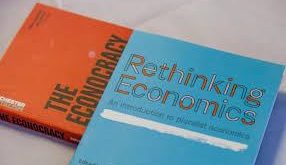Även den som uppskattar konkurrens och privat utförande på skolans område ser nog skandalen kring Vetenskapsskolan som problematisk. Skolans VD har omhändertagits av Säpo, sannolikt beroende på radikalislamistiska kopplingar … Vetenskapsskolan må vara ett extremt fall, men också symptomatiskt för den modell för privat utförande som gäller i skolan … [I] den svenska modellen [ses det] snarast som en rättighet att driva fristående skolor medan det är upp till tillståndgivande...
Read More »Agnes Heller
Sie hat das Glück in eine Reihenfolge gebracht. Einer der glücklichsten Momente ihres Lebens war es demnach, als sie spät in der Nacht die Lichter Venedigs in ihrem Zugfenster aufleuchten sah, im Jahr 1960. Die Grenzen zwischen dem Osten und dem Westen Europas waren geschlossen, es war ihre erste Italienreise, und ihr Pass wurde bald wieder eingezogen. Als die ungarische Philosophin Ágnes Heller, deren Werk die Aufmerksamkeit für das mögliche Glück durchzieht, diese Episode in...
Read More »Economics education needs a revolution
Economics education needs a revolution Economics has become a rather quaint and highly guarded discipline. We urgently need to update economics education to change this – because economics, as taught in universities, does not reflect or speak to many of the issues of the real world, be they political, environmental or social. Take the tricky entanglement between politics and economics, which economists tend to try to avoid. Such an attempt is futile....
Read More »Nothing compares (personal)
[embedded content] Tomorrow is Mother’s Day here in Sweden. This one is in loving memory of my mother Lisbeth, and of Kristina, beloved wife and mother of David and Tora. Those whom the gods love die young. But in dreams, I can hear your name. And in dreams, We will meet again. When the seas and mountains fall And we come to end of days, In the dark I hear a call Calling me there I will go there And back again. [embedded content]
Read More »Adorno: Jargon der Eigentlichkeit
Adorno: Jargon der Eigentlichkeit [embedded content]
Read More »10 Jahre Finanzkrise: Die Party der Banker geht weiter
10 Jahre Finanzkrise: Die Party der Banker geht weiter [embedded content]
Read More »Was wollen Europas Rechtspopulisten?
[embedded content]
Read More »Friday on my mind
Friday on my mind [embedded content]
Read More »Leader of the pack
Leader of the pack [embedded content]
Read More »Itchycoo Park
[embedded content]
Read More » Lars P. Syll
Lars P. Syll



